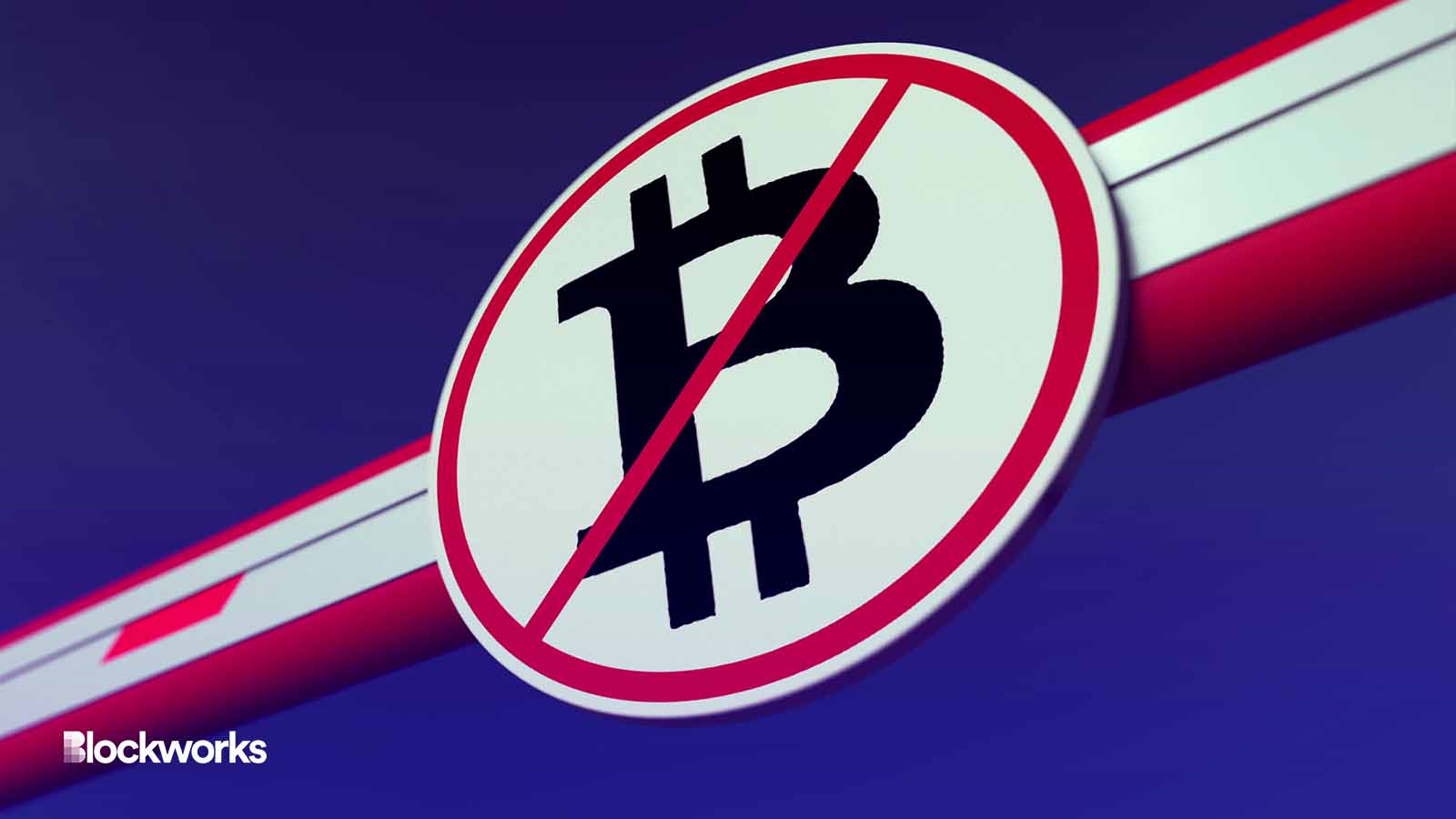Crypto payments to ‘high-risk’ crypto exchanges to be blocked by Aussie bank
Transfers to “high-risk” crypto exchanges will be declined, National Australia Bank has said, but only it knows exactly how that’s determined

Novikov Aleksey/Shutterstock modified by Blockworks
National Australia Bank is tightening its crypto policies in response to what it says is a growing risk of customers being scammed.
As of Tuesday, the bank said new protections decline “some transactions made to high-risk cryptocurrency exchanges.” National Australia Bank, or NAB, didn’t name which exchanges it had identified as high risk.
Fund transfers, PayID, credit and debit card transactions to those unnamed exchanges will all be declined, per the statement. Contacting the bank on the matter would not change the outcome, it said. Withdrawals from exchanges to the bank will remain unaffected.
NAB declined Blockwork’s request for further details but said its decision to block payments to “several crypto exchanges” is “consistent with broader industry actions in reducing “scam-related crypto payments.”
“We have introduced these blocks where we identify a high proportion of payments going towards scams,” said Chris Sheehan, NAB’s head of group investigations and fraud business unit.
Should customers find transactions to crypto exchanges blocked, NAB advised contacting the firm in question to determine what alternative payment methods are available to them.
“We are doing this to try and keep our customers safe from scams,” NAB said. “We’ll continue to monitor fraud and scams in relation to cryptocurrency exchanges, including the impact of the changes made and may make further changes in the future if required.”
Another bank just set monthly limits on crypto exchange deposits
NAB joins major rivals Commonwealth Bank (CBA) and Westpac in crypto policy they all say is aimed at protecting consumers from scams and other risks.
CBA introduced a 10,000 Australian dollar ($6,811) monthly limit for cash sent to crypto exchanges last month. Smaller banks and credit unions have yet to implement similar policies.
Industry proponents say the banks’ actions restrict economic freedom. Both Commonwealth Bank and Westpac did not immediately return a request for comment.
Local exchange Swyftx told Blockworks the impact of CBA’s deposit limits led to a 50% spike in false positives for fraud, which made tackling real fraud more difficult.
Swyftx said it has not yet been affected by NAB’s decision, and customers have so far been able to transact using their Commbank and Westpac accounts.
“Some exchanges clearly have to do a lot better on scams and security. But banks need to be careful with industry-wide restrictions because they don’t solve the underlying problem,” Jason Titman, Swyftx’s chief operating officer, said.
He said it made “no sense” for banks to target the entirety of customer payments at “well-run” platforms, where almost all transactions are legitimate.
“While we appreciate the banks are conscious of their corporate responsibilities, crypto is continuing to gain legitimate use cases,” Titman said. “This approach actually hurts the banks’ customers they say they are trying to protect.”
News analysis by David Canellis
Tightening crypto rules under the guise of consumer protection has become tradition for institutions around the world.
It’s easy to lump this Australian bank in with the International Monetary Fund, the World Bank, Financial Action Task Force and the Federal Reserve — all of which have broad brushed crypto to be overrun with scams and fraud.
Stopping customers from becoming fraud victims is a noble goal. And there is no shortage of crypto scams out there, including phony trading platforms and dodgy brokers.
It’s true that crypto exchanges sometimes list cryptocurrencies with little legitimate value — many of which could be considered scams depending on how broad the definitions. Low-quality venues with poor liquidity should generally be avoided.
But NAB is being frustratingly vague here. Is it clamping down on fraudulent venues that list too many memecoins? What about crypto exchanges that unknowingly list rug pulls — will NAB cut them off from their users?
NAB’s opaque rules give little insight into their effectiveness. NAB customers may very well be getting scammed, and the bank could simply be retaining flexibility to cut off any crypto-related entity they please.
The bank should know crypto is a response to exactly that kind of unilateral power over people’s money. A whole industry built around undermining that power. NAB, CBA and other Aussie banks may want to rethink how they communicate with the ecosystem.
Retaining trust will only become more difficult as the relevance of legacy finance fades in favor of crypto over the next few decades. Transparency is the only way.
Get the news in your inbox. Explore Blockworks newsletters:
- The Breakdown: Decoding crypto and the markets. Daily.
- 0xResearch: Alpha in your inbox. Think like an analyst.






